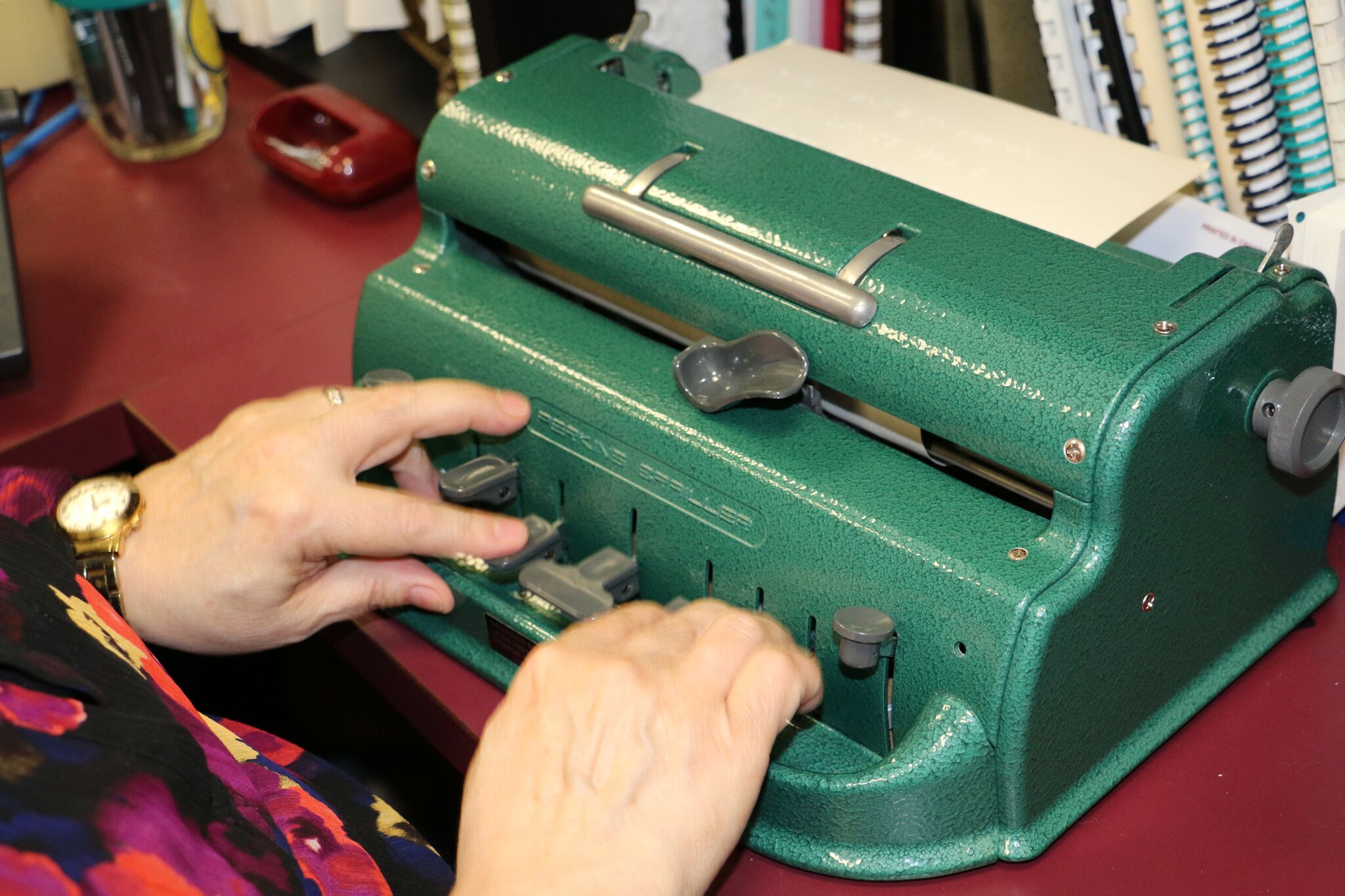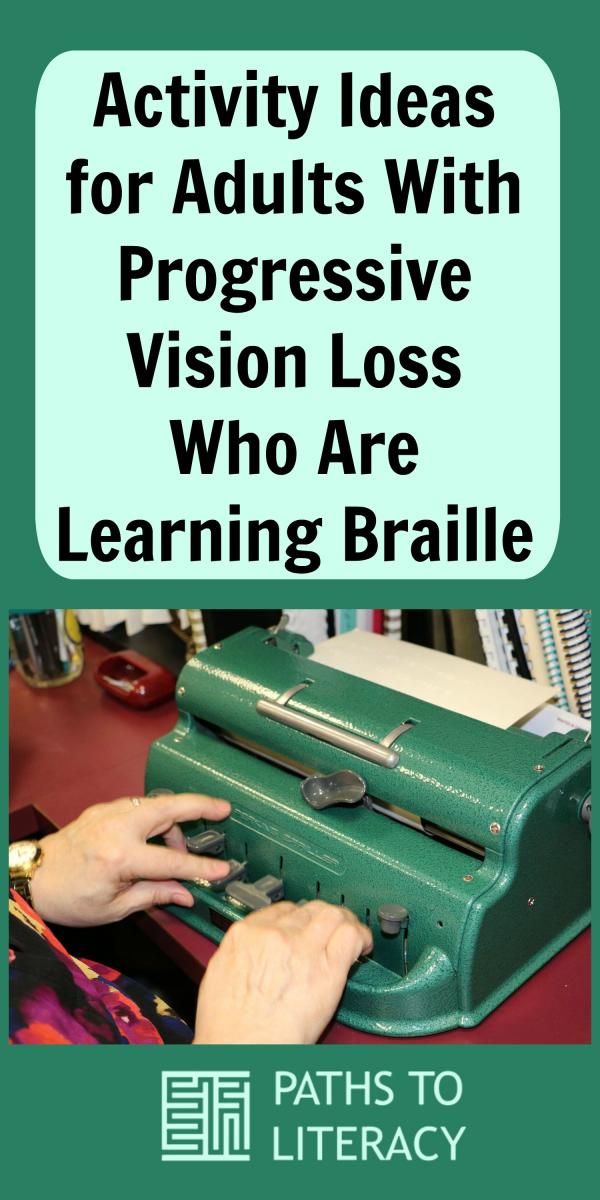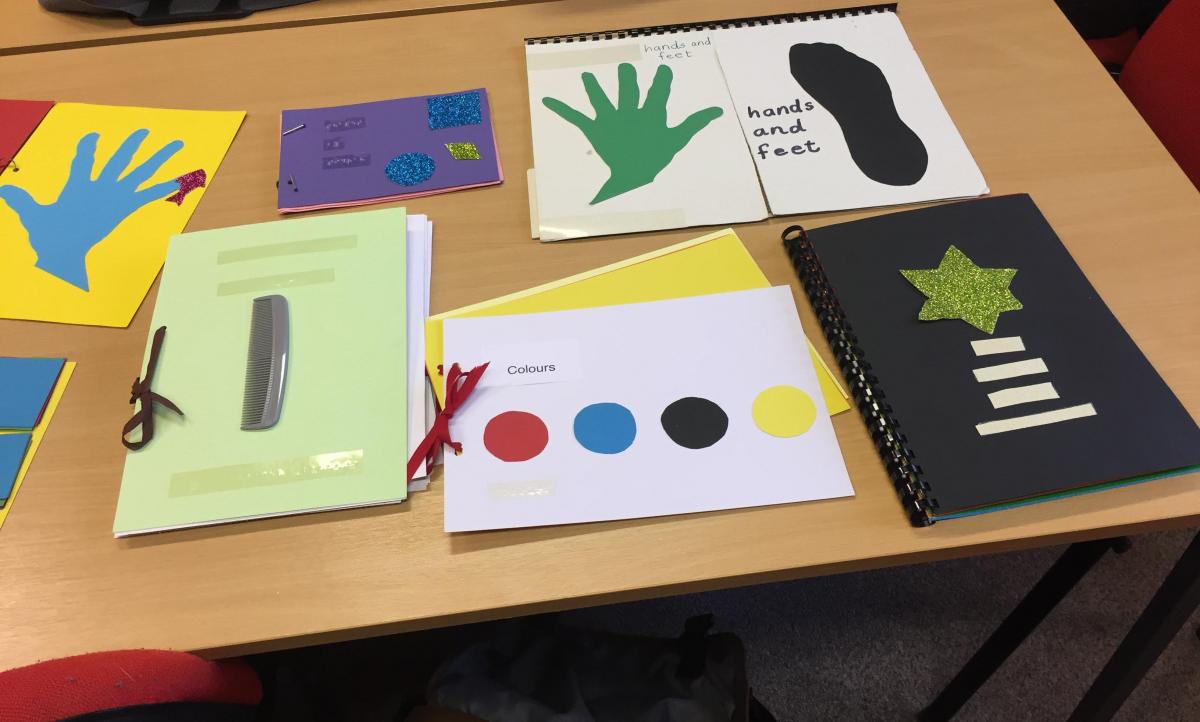Activity Ideas for Adults With Progressive Vision Loss Who Are Learning Braille

I am a retired teacher of students with visual impairment and now I run a small group for adults who have deteriorating vision and want to learn braille. I work at a resource centre with RNIB (Royal National Institute of Blind People) in the United Kingdom. I have been doing this for nearly a year now. It would be great to get in touch with other similar groups!
General Thoughts
There are currently 8 students in my group. Most of them have quite a bit of useful vision, but have been told that their sight is likely to deteriorate further and stop them reading print. The youngest is about 23 and the oldest about 80. Some of the group have done very well and have worked through the UEB online course, but others are still working through the alphabet! They are the ones who do less practice between sessions, and frequent practice is essential. One of the students has reduced sensitivity and ideally prefers jumbo dot braille, single-sided and double-spaced. I encourage them to read by touch, but most of them have enough sight to read the braille dots, if they look closely enough. One of them actually dims the light at home so she is not tempted to read by sight. Apparently she identifies her medication by touch, so I hope she gets the braille right!
As a teacher, I feel I should have focused more on reading by touch. Like most VI teachers, I have always read braille by sight, so I am teaching them to do something I can’t do myself!
Group Activities
- We have made some tactile books to send to a 4-year-old in the local area. The idea of this was to make the most of small amounts of braille text. I had hoped that the group could involve family members to help them make the tactile illustrations, but in the end I had to prepare them myself, except for one student who enjoys craft.
- We send birthday & get well cards, etc. with added braille to members of the group.
- We play a simple game intended to help reading by touch: one student chooses 3 words on pieces of paper & thinks of a clue to identify one of the words. The other student has to read the 3 words to identify the correct word. We put the words in a bag because several of the group still have enough sight to “cheat” and read by sight.
- A friend of mine has kindly refurbished most of the braillers -- there were about 8 Perkins braillers in the office, but several were in a poor condition. I have loaned one of them to a member of the group and he finds it really helpful to be able to braille at home; he couldn’t afford even a second-hand brailler.
- We were asked to make some braille labels for a local children’s hospice. After that I offered to make some braille books for the child who goes there for respite. “Horrid Henry” was suggested, which was a bit too long, but one of the group has brailled one of the stories and it has certainly helped him to learn braille punctuation!
- The online UEB course has been very helpful for the students who wanted to learn contracted braille. The Braille Bug website is good too, if you have enough vision for it.
- Two of the students had hoped to have braille pen-friends, but I don’t think anything has come of this yet.
- We sometimes play Pontoon (which is similar to Blackjack), and we did try Rummy, but that involves holding up to 10 cards at once, whereas Pontoon needs fewer cards. I had never played it before, but the students have taught me!
- I have downloaded and brailled some crossword puzzles and quizzes from the internet. Most of the students have enough vision to fill in an enlarged grid with a felt-tip.
- We have brailled some jokes, which again helps us to make the most of small amounts of braille.
- We have played the party game Consequences (similar to Mad Libs), just for a laugh.
- Some of them like Bingo, though the set we have has very faint dots.
- We are going to visit a historic house and I have obtained braille copies of the information leaflet so the students have time to read it before they go.
- I have asked the students to braille a poem to read out loud, thinking that if it was a poem they knew reasonably well, they would be riding partly from memory and partly by touch, to build up their confidence.
If you have a similar type of group or other ideas, please leave comments at the bottom of the page. I'd love to hear your ideas and find out what has worked for you!


